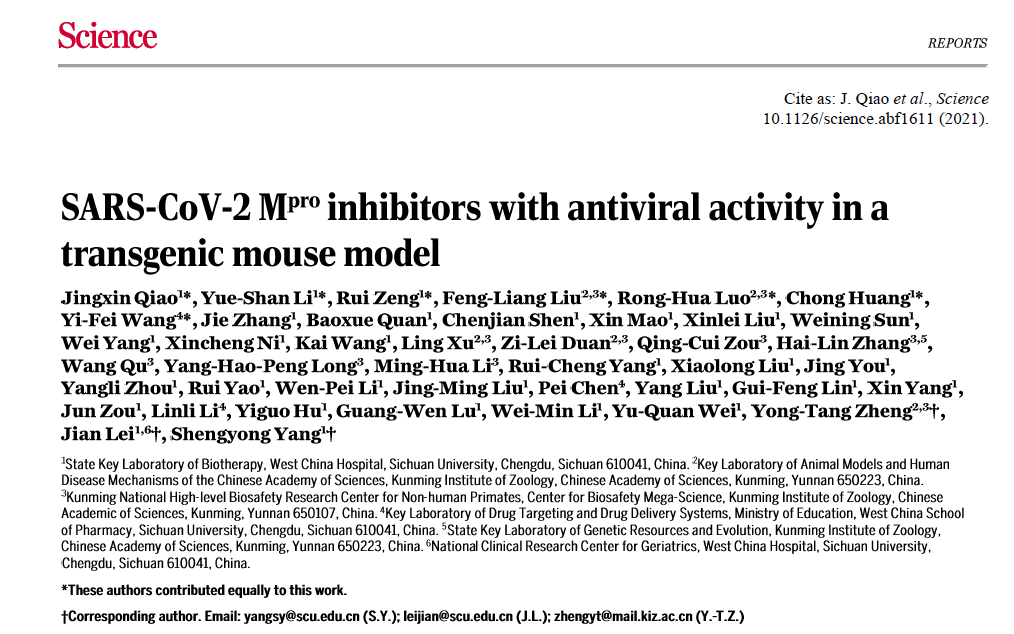The COVID-19 pandemic, which is caused by the severe acute respiratory syndrome coronavirus 2 (SARS-CoV-2), poses a serious threat to global public health. By the end of January 2021, the virus has infected more than 100 million people and caused more than 2.2 million deaths. Due to limited antiviral agents available to combat SARS-CoV-2 infection, developing specific antiviral drugs against SARS-CoV-2 is urgently needed.
In collaboration with Kunming Institute of Zoology, Chinese Academy of Sciences, the State Key Laboratory of Biotherapy(SKLB) of West China Hospital, Sichuan University published online a research paper entitled "Sars-Cov-2MproInhibitors with Antiviral Activity in a Transgenic Mouse Model" inScienceon Feb.19. The first author work unit is SKLB. The corresponding authors are Shengyong Yang, Jian Lei and Yong-Tang Zheng; and the first authors are Jingxin Qiao, Yue-Shan Li, Rui Zeng, Feng-Liang Liu, Rong-Hua Luo, Chong Huang and Yi-Fei Wang.

“The main protease (Mpro) of SARS-CoV-2 plays a central role in viral replication. We designed and synthesized 32 new bicycloproline-containing Mpro inhibitors derived from either Boceprevir or Telaprevir, both of which are approved antivirals. All compounds inhibited SARS-CoV-2 Mpro activity in vitro with IC50 values ranging from 7.6 to 748.5 nM. The co-crystal structure of Mpro in complex with MI-23, one of the most potent compounds, revealed its interaction mode. Two compounds (MI-09 and MI-30) showed excellent antiviral activity in cell-based assays. In a SARS-CoV-2 infection transgenic mouse model, oral or intraperitoneal treatment with MI-09 or MI-30 significantly reduced lung viral loads and lung lesions. Both also displayed good pharmacokinetic properties and safety in rats.” (Abstract)

“MI-09 or MI-30 reduced the levels of IFN-β, and CXCL10 Also, fewer neutrophils and macrophages occurred in the lungs of compound-treated mice compared with the control mice, suggesting inhibition of immune cell infiltration. Altogether, i.p. or p.o. administration of MI-09 or MI-30 could efficiently inhibit SARS-CoV-2 replication and ameliorate SARS-CoV-2-induced lung lesions in vivo, and they represent an important step toward the development of orally available anti-SARS-CoV-2 drugs.”
The research work was completed by the domestic work units, and was supported by the Sichuan provincial COVID-19 emergency project, the West China Hospital COVID-19 science and technology research project, and the National Natural Science Foundation of China.
